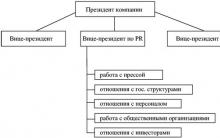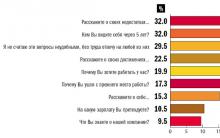At the end of 862, the prince of Great Moravia (the state of the Western Slavs) Rostislav turned to the Byzantine emperor Michael with a request to send preachers to Moravia who could spread Christianity in the Slavic language (sermons in those parts were read in Latin, unknown and incomprehensible to the people).
863 is considered the year of birth of the Slavic alphabet.
The brothers Cyril and Methodius were the creators of the Slavic alphabet.
Emperor Michael sent the Greeks to Moravia - the scientist Constantine the Philosopher (the name Cyril Constantine received when he accepted monasticism in 869, and with this name went down in history) and his older brother Methodius.
The choice was not random. The brothers Constantine and Methodius were born in Thessaloniki (Greek Thessaloniki) in the family of a military leader, and received a good education. Cyril studied in Constantinople at the court of the Byzantine emperor Michael III, knew Greek, Slavic, Latin, Hebrew, Arabic languages well, taught philosophy, for which he received the nickname Philosopher. Methodius was in military service, then for several years he ruled over one of the regions inhabited by the Slavs; subsequently retired to a monastery.
In 860, the brothers already made a trip to the Khazars for missionary and diplomatic purposes.
To be able to preach Christianity in the Slavic language, it was necessary to make a translation Scripture on the Slavic language; however, the alphabet capable of transmitting Slavic speech did not exist at that time.
Constantine began to create the Slavic alphabet. In his work, Methodius helped him, who also knew the Slavic language well, since a lot of Slavs lived in Soluni (the city was considered half-Greek, half-Slavic). In 863, the Slavic alphabet was created (the Slavic alphabet existed in two versions: the Glagolitic alphabet - from the verb - "speech" and the Cyrillic alphabet; until now, scientists have no consensus about which of these two options was created by Cyril). With the help of Methodius, a number of liturgical books were translated from Greek into Slavic. The Slavs were given the opportunity to read and write in their own language. The Slavs had not only their own, Slavic, alphabet, but also the first Slavic literary language, many words of which still live in Bulgarian, Russian, Ukrainian and other Slavic languages.
After the death of the brothers, their activities were continued by their disciples, expelled from Moravia in 886,
in the South Slavic countries. (In the West, the Slavic alphabet and Slavic literacy did not resist; the Western Slavs - Poles, Czechs ... - still use the Latin alphabet). The Slavic literacy firmly established itself in Bulgaria, from where it spread to the countries of southern and Eastern Slavs(IX century). Writing came to Russia in the X century (988 - the baptism of Russia).
The creation of the Slavic alphabet was and still is of great importance for the development of Slavic writing, Slavic peoples, and Slavic culture.
The Bulgarian Church established the Day of Remembrance of Cyril and Methodius - May 11 according to the old style (May 24 according to the new style). The Order of Cyril and Methodius was also established in Bulgaria.
May 24 in many Slavic countries, including Russia, is a holiday of Slavic writing and culture.
Flowers, trees, animals, and people are God's creations. But people differ from all living things in that they can speak. Everything in the world has a name: a cloud, a river, a carnation, a birch, wind and lightning. All signs of objects and phenomena: red, fast, warm, cold - everything is named. In a conversation we say: "Grandma, I miss you." But it's good to say when grandma is around. And if she is in the village, in another city? You must somehow tell her that you miss, you are waiting for her to visit. You can call? What if your grandmother's phone is broken? Write! Write a letter. A letter is dearer than any call, the letter can be re-read, shown to neighbors: "Look, my granddaughter is writing to me, inviting me to visit."
To write a letter, you need to know the words. And words are made up of letters. The letters are connected by an alphabet. Our alphabet is now almost in the form in which it was brought to Russia by the holy brothers Cyril and Methodius, Equal to the Apostles. They translated many books from Greek into Slavic, mostly religious, introduced worship in the Slavic language. For this they underwent many persecutions from Roman Catholics: they did not want the Slavs to have their own written language. To this the brothers answered: "Doesn't the sun shine for everyone, isn't it raining for everyone, shouldn't the Word of God come to everyone, and in the language that a person speaks?"
An alphabet prayer was based on the Slavic alphabet. "Az Buki Vedi" in translation: I know (know) letters. "The verb, good, is, you live" in translation: it is good to live in a good way. "Kako, people, you think" - this does not need to be translated. Just like "rtsy, word, firmly," that is: speak the word confidently, firmly.
Of course, it is immediately noticeable that the initial letters of the words exactly make up our "abevegedeshka", the alphabet. We learned the alphabet aloud before, all together. There was even such a proverb: "They teach the ABC, they shout in the whole hut."
The day of the holy brothers Cyril and Methodius of Thessaloniki is celebrated just on the day when it is heard in our schools last call, May 24. This day is a holiday of Slavic writing and culture.
According to V. Krupin's book "Children's church calendar". M., 2002.
This is the only state and church holiday in our country. On this day, the church honors the memory of Cyril and Methodius, who invented the Cyrillic alphabet.
The church tradition of venerating the memory of Saints Cyril and Methodius originated in the 10th century in Bulgaria as a token of gratitude for the invention of the Slavic alphabet, which gave many peoples the opportunity to read the Gospel in native language.
In 1863, when the alphabet turned one thousand years old, the holiday of Slavic writing and culture was first celebrated on a grand scale in Russia. At Soviet power Ceased to celebrate the holiday, and the tradition was revived again in 1991.
The creators of the Slavic alphabet Cyril (before taking monasticism - Constantine) and Methodius (Michael) grew up in the Byzantine city of Thessaloniki (now Thessaloniki, Greece) in a wealthy family, where there were only seven children. Ancient Solun was part of the Slavic (Bulgar) territory and was a multilingual city in which different linguistic dialects coexisted, including Byzantine, Turkish and Slavic. The elder brother, Methodius, became a monk. The youngest, Cyril, excelled in the sciences. He perfectly mastered the Greek and Arabic languages, studied in Constantinople, was educated by the greatest scientists of his time - Leo Grammar and Photius (the future patriarch). After completing his studies, Constantine was ordained a priest and was appointed curator of the patriarchal library at the Church of St. Sophia and taught philosophy at the higher school of Constantinople. Cyril's wisdom and power of faith were so great that he managed to defeat the heretic Aninius in the debate. Soon Constantine had his first disciples - Clement, Nahum and Angelarius, with whom he came to the monastery in 856, where his brother Methodius was the abbot.
In 857, the Byzantine emperor sent brothers to Khazar Kaganate for evangelistic preaching. On the way, they stopped in the city of Korsun, where miraculously acquired the relics of the Holy Martyr Clement, Pope of Rome. After that, the saints went to the Khazars, where they persuaded the Khazar prince and his entourage to accept Christianity and even took 200 Greek captives from there from captivity.
In the early 860s, the ruler of Moravia, Prince Rostislav, who was oppressed by the German bishops, turned to the Byzantine emperor Michael III with a request to send scholars, missionaries who knew the Slavic language. All divine services, sacred books and theology there were Latin, but the Slavs did not understand this language. “Our people profess the Christian faith, but we do not have teachers who could explain the faith to us in our native language. Send us such teachers, ”he asked. Michael III answered the request with consent. He commissioned Cyril to translate the service books into a language understandable to the inhabitants of Moravia.
However, in order to record the translation, it was necessary to create a written Slavic language and a Slavic alphabet. Realizing the scale of the task, Kirill turned to his older brother for help. They came to the conclusion that neither the Latin nor the Greek alphabets correspond to the sound palette of the Slavic language. In this regard, the brothers decided to remake the Greek alphabet and adapt it to the sound system of the Slavic language. The brothers did a great job of isolating and transforming sounds and tracing the letters of the new script. Based on the developments, two alphabets were compiled - (named after Cyril) and the Glagolitic alphabet. According to historians, the Cyrillic alphabet was created later than the Glagolitic alphabet and on its basis. With the help of the Glagolitic alphabet, the Gospel, Psalter, Apostle and other books were translated from the Greek language. According to the official version, this happened in 863. Thus, we are now celebrating 1155 years since the creation of the Slavic alphabet.
In 864 the brothers presented their work in Moravia, where they were received with great honors. Soon, many students were assigned to study for them, and after a while the entire church order was translated into the Slavic language. This helped teach the Slavs all church services and prayers, in addition, the lives of the saints and other church books were translated into Slavonic.
The acquisition of its own alphabet led to the fact that the Slavic culture made a major leap forward in its development: it acquired an instrument for recording its own history, for consolidating its own identity even at a time when the majority of modern European languages did not exist yet.
In connection with the constant intrigues of the German clergy, Cyril and Methodius twice had to justify themselves before the Roman high priest. In 869, unable to withstand the stress, Cyril died at the age of 42.
When Cyril was in Rome, he had a vision in which the Lord told him about the approach of death. He accepted the schema (the highest level of Orthodox monasticism).
His work was continued by his elder brother Methodius, who was ordained to the episcopal rank in Rome shortly thereafter. He died in 885 after being exiled, humiliated and imprisoned for several years.
The Equal-to-the-Apostles Cyril and Methodius were numbered among the saints in antiquity. In the Russian Orthodox Church, the memory of the enlighteners of the Slavs has been honored since the 11th century. The oldest services to saints that have come down to our time date back to the 13th century. The solemn celebration of the memory of the saints was established in the Russian Church in 1863.
For the first time, the Day of Slavic Written Language was celebrated in Bulgaria in 1857, and then in other countries, including Russia, Ukraine, Belarus. In Russia, at the state level, the Day of Slavic Literature and Culture was first solemnly celebrated in 1863 (the 1000th anniversary of the creation of the Slavic alphabet was celebrated). In the same year, Russian Holy Synod decided to celebrate the Day of Remembrance of Saints Cyril and Methodius on May 11 (24 in a new style). During the years of Soviet power, the holiday was consigned to oblivion and was restored only in 1986.
January 30, 1991 May 24 was declared the Day of Slavic Literature and Culture, thereby giving it state status.
May 24 Russian Orthodox Church celebrates the memory of Saints Cyril and Methodius.
The name of these saints is known to everyone from school, and it is to them that all of us, native speakers of the Russian language, owe our language, culture, and writing.
Incredibly, all European science and culture was born within the monastery walls: it was at the monasteries that the first schools were opened, children were taught to read and write, and vast libraries were collected. It was for the enlightenment of the peoples, for the translation of the Gospel, that many scripts were created. So it happened with the Slavic language.
The holy brothers Cyril and Methodius came from a noble and pious family who lived in the Greek city of Thessalonia. Methodius was a warrior and ruled over the Bulgarian principality of the Byzantine Empire. This gave him the opportunity to learn the Slavic language.
Soon, however, he decided to leave the secular way of life and became a monk at the monastery on Mount Olympus. Constantine from childhood expressed amazing abilities and received an excellent education together with the juvenile emperor Michael III at the royal court
Then he became a monk in one of the monasteries on Mount Olympus in Asia Minor.
His brother Constantine, who took the name Cyril as a monk, was distinguished from an early age with great abilities and perfectly comprehended all the sciences of his time and many languages.
Soon the emperor sent both brothers to the Khazars to preach the gospel. According to legend, on the way they stopped in Korsun, where Constantine found the Gospel and the Psalter, written in "Russian letters", and a person who spoke Russian, and began to learn to read and speak this language.
When the brothers returned to Constantinople, the emperor again sent them on an educational mission - this time to Moravia. The Moravian prince Rostislav was oppressed by the German bishops, and he asked the emperor to send teachers who could preach in the native language of the Slavs.
The first of Slavic peoples who converted to Christianity were Bulgarians. In Constantinople, the sister of the Bulgarian prince Bogoris (Boris) was held hostage. She was baptized with the name of Theodora and was brought up in the spirit of the holy faith. Around 860, she returned to Bulgaria and began to persuade her brother to accept Christianity. Boris was baptized, taking the name Michael. Saints Cyril and Methodius were in this country and by their preaching greatly contributed to the establishment of Christianity in it. From Bulgaria the Christian faith spread to neighboring Serbia.
To fulfill the new mission, Constantine and Methodius compiled the Slavic alphabet and translated the main liturgical books (the Gospel, the Apostle, the Psalter) into the Slavic language. This happened in 863.
In Moravia, the brothers were received with great honor and began to teach Divine services in the Slavic language. This aroused the anger of the German bishops who were conducting services in the Moravian churches in Latin, and they filed a complaint with Rome.
Taking with them the relics of St. Clement (Pope), discovered by them in Korsun, Constantine and Methodius set off for Rome.
Having learned that the brothers were carrying holy relics with them, Pope Adrian greeted them with honor and approved the divine service in the Slavic language. He ordered the books translated by the brothers to be placed in Roman churches and to celebrate the liturgy in the Slavic language.
Saint Methodius fulfilled his brother's will: having returned to Moravia already in the rank of archbishop, he worked here for 15 years. From Moravia, Christianity penetrated into Bohemia during the lifetime of Saint Methodius. Bohemian prince Borivoi took from him holy baptism... His example was followed by his wife Lyudmila (who later became a martyr) and many others. In the middle of the 10th century, the Polish prince Mechislav married the Bohemian princess Dombrovka, after which he and his subjects adopted the Christian faith.
Subsequently, these Slavic peoples, through the efforts of Latin preachers and German emperors, were torn away from the Greek Church under the authority of the Pope, with the exception of the Serbs and Bulgarians. But among all the Slavs, despite the past centuries, the memory of the great Equal-to-the-Apostles enlighteners and that Orthodox faith which they tried to plant among them. The sacred memory of Saints Cyril and Methodius serves as a connecting link for all Slavic peoples.
The material was prepared on the basis of information from open sources
We all know how to read and write, but we never think about who created the letters and words, that is, the alphabet. Who were these two brothers? Which life path did they pass? Through what twists and turns did Cyril and Methodius carry their creation? Why were they elevated to the rank of saints? What monumental books did they translate into the Slavic language, thereby giving us knowledge? Long, thorny path from an ordinary Greek family to icons of all Slavic churches.
The Byzantine Empire gave Russia not only the Christian religion, but also writing, the significance of which is difficult to overestimate. The people who were at the origin of the creation of Slavic writing are destined to forever remain on the list of the most eminent people in our history. Their names are Cyril and Methodius, revered by the Russian Church as the names of saints.
Cyril and Methodius were brothers. They were born in the city of Thessalonica (Byzantium). In Russian, this name is known in the sources as "Solun" ("Arrives from Solun"). Also, some sources call the brothers not Cyril and Methodius, but Constantine and Michael. As for their origin, many scientists put forward the opinion that their family dates back to Greek roots.
In Slavic Orthodoxy, Cyril and Methodius are revered as saints equal to the apostles "teachers of the word"; the sequence officially accepted by the church is “Methodius and Cyril”.
Their family was reputed to be quite wealthy and noble. His father had the rank of officer and carried out military service at the court of the governor (stratig) of Thessaloniki. In addition to Cyril and Methodius, the family had seven more sons. All of them, starting from the elder Michael (Methodius) and ending with Constantine (Cyril), also had to follow in the footsteps of their father, that is, to embark on the path military service... Under the patronage of his father, Mikhail made a very good career in this field. He managed to rise to the rank of stratig (military and civilian governor) of the province of Slavinia, located in Macedonia, then part of the Byzantine Empire.
The ten years he spent in this post were not in vain for Michael (Methodius). Over the years, he perfectly mastered the Slavic language, which later became a priority for deciding on the creation of the Slavic alphabet. It is not known exactly what caused Mikhail to abandon a successful military career overnight. Many historians see this as an expression of personal search, a desire to find their true destiny. Anyway, after ten years military service, Michael makes a firm decision to have a haircut as a monk. He made this decision almost immediately, in one of the Slavic monasteries located on Mount Olympus.
In 860, Constantine was sent as a missionary to the Khazar Kagan. There, a dispute between Constantine and the imam and the rabbi took place. According to some sources, Constantine won it, but the kagan did not change his faith. According to others, the rabbi pitted Constantine against the imam and proved to the kagan the advantages of the Jewish faith.
Constantine, the youngest of the brothers in the family, amazed from childhood with the breadth of his interests and remarkable abilities for science. The father, as if on a whim from above, refused to make plans for the military future of his youngest son. Constantine was sent to study to one of the most best teachers the city of Constantinople - the capital of Byzantium, to the teachers who taught the young Emperor Michael. Among these teachers was the future Patriarch of Constantinople Phocius. Constantine was fluent in many languages, had vast knowledge in various branches of science. He was especially interested in theology and philosophy. He enthusiastically studied the works of the apologists of the church. His own views were in tune with the thoughts of the famous Saint Gregory the Theologian.
Constantine, being at a very young age, clearly determined for themselves that he would devote his life to serving the Lord. Having barely finished his studies, he takes the rank of priest and holds the honorary position of curator of the Patriarchal Library located in the Church of St. Sophia in Constantinople. Constantine did not stay in this position for long, leaving dusty folios and manuscripts for the sake of the life of a wandering monk. It is noteworthy that Konstantin secretly left the library, practically fleeing to one of the many monasteries. What drove him? Youth? Ardent impulses? Fortunately, the fugitive was found and returned to Constantinople. He was offered to become a teacher of philosophical sciences at the higher school of Constantinople.
Western theologians believed that praising God could only be done in Greek, Hebrew, and Latin. Constantine and Methodius, who preached in Moravia, were considered heretics and summoned to Rome. But the Pope approved the service in the Slavic language, and ordered the translated books to be put in Roman churches.
Here his talent as a theologian and philosophical thinker was fully manifested. His bright oratory skills and the ability to convince any audience that he was right allowed Konstantin (Cyril) to win his first significant victory in the theological field: to defeat the views of the iconoclasts in debate - one of the heretical movements that openly opposed Orthodox Christianity.
The emperor of Byzantium and the fathers of the Byzantine church appreciated the talent of Constantine, instructing him to lead a dispute with the Saracens, where Constantine was to defend the immutability of the doctrine of the Holy Trinity. And here Konstantin also became the winner.
In the mid 50s of the 9th century A.D. he was destined to lead a missionary trip to the Arab lands. Later, with the same educational goal, he, together with his brother Mikhail (Methodius), went to the Khazars. Their goal is to convey to other peoples the true values of Christianity. And everywhere there were people ready to listen to the words of Constantine. He knew not only the theory of Christian theology well, but also perfectly studied the Koran, finding in it many confirmations of his words. Years of missionary service brought him fame and respect among many Slavic peoples. Constantine was often called the Philosopher, honoring his wisdom.
The main merit of Constantine is the compilation of the foundations of the Slavic alphabet. In this matter, his brother, Michael (Methodius), helped him in everything. They not only laid the foundation for Slavic writing, but also translated the Gospel into the Slavic language.
According to the Life of Constantine, the letters of the new alphabet were given to Cyril by divine revelation: “The Philosopher went and began to pray ... And God revealed to him that he was listening to the prayers of His servants, and then he folded the letters and began to write the words of the Gospel:“ In the beginning was the Word and the Word was with God, and the Word was God. "
The last years of his life, Constantine spent in Rome, seriously ill, but tirelessly working on the compilation of theological works. In 869 A.D., anticipating the approach of death, he took the schema (trimming as a monk) and a new name - Cyril, and was also elevated to the rank of Archbishop of Moravia and Pannonia.
Mikhail, who was not only his brother, but also his closest comrade-in-arms and associate, was by his side until his last breath. It was to him that Konstantin addressed his last words: “You and I are like two oxen. When one falls from a heavy burden, the other will continue on his way. "
Cyril was buried in the church of St. Clement in Rome. Once, on one of his missionary trips, Constantine discovered the relics of this Roman emperor, numbered among the saints for his great martyrdom, and reverently delivered them to his homeland.
After the death of his brother Methodius returned to Moravia. In 870 he was arrested on charges of heresy. He spent about three years in captivity. He was released only after the personal intervention of the Pope. In order to completely protect his life's work from attacks from the German clergy, who had extended their influence to Moravia, Methodius insisted on a personal audience with the Pope. Having met with him, he asked to approve the liturgical works translated by him and Cyril into the Slavic language. The Pope and the Roman curia did not find anything in them that would somehow contradict the canons and dogmas of Christianity.
Methodius devoted the rest of his days to translating the Bible, the Patericon, a collection of church laws of the Byzantine Church (Nomokanon) into the Slavic language. He died on April 19, 885, on the day of the bright church holiday - Palm Sunday. It is noteworthy that despite the approaching breath of death, he found the strength to serve the festive church service bequeathing to people to follow the laws Christian religion... To commemorate his merits, the funeral service for the deceased was carried out in 3 languages at once: Latin, Greek and Slavic. The Church, however, canonized Methodius and his brother Cyril.
“The Tale of Bygone Years” says that all the Greek church books were translated into the Slavic language in six months by the efforts of only two people: “Methodius planted two priests ... October 26 ... "
The death of Cyril and Methodius prompted their opponents to ensure that the Slavic writing, as well as worship in the Slavic language in the territory of Moravia, were placed under the strictest ban. The followers of the saints were persecuted and persecuted. Many of them settled in Croatia, Serbia, Bulgaria, in cities Kievan Rus... This is what contributed to the widespread dissemination of Slavic writing.
The Slavic alphabet, compiled by brothers Cyril and Methodius, was called "Glagolitic". Church Slavonic writing based on Glagolitic should not be confused with Cyrillic. This is a more adapted alphabet, developed somewhat later by the disciples of Saints Cyril and Methodius. The Cyrillic alphabet is used by such peoples as the Macedonians, Serbs, Bulgarians, as well as Ukrainians, Belarusians, and Russians.
The merits of Saints Cyril and Methodius are appreciated at their true worth by many peoples inhabiting the East and West. The Day of Slavic Culture and Writing is an official public holiday in our country, as well as in Bulgaria, the Czech Republic and Slovakia. By tradition, it is celebrated on May 24 (in Slovakia and the Czech Republic - 5 ilul). In addition, in Bulgaria there is even a special order of Cyril and Methodius, which is appreciated for special merits in the field of culture.











Energy drinks: give vigor, but take away health What will happen if you drink 4 energy drinks
Mustard for weight loss: how to use the seasoning with maximum benefit Is it possible for children to have mustard
The benefits and harms of mustard for the human body Table mustard benefits and harms
How to treat the ear after piercing: types of antiseptics, their composition, rules and features of the treatment of a pierced ear
Sistine Chapel in the Vatican: description, history, architectural features